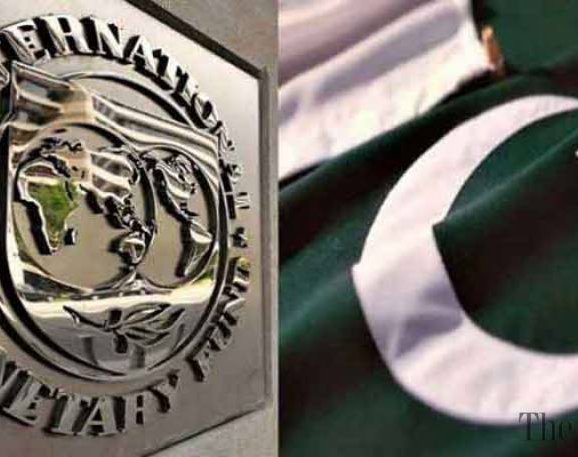The IMF was supposed to meet on 12/1 to consider releasing $1 billion out of 6 billion for the bailout of Pakistan, but is asking the IMF to delay the aid decision due to the failure to cut spending, Al Jazeera explains. The bailout is tied to the withdrawal of tax exemptions and subsidies to businesses, increased fuels and energy tariffs. Pakistan is proceeding slowly, but among the consequences already in place is the imposition of a tax on textile and leather machinery imported into processing zones for export.
Pakistan has asked the International Monetary Fund (IMF) to postpone a council meeting intended to consider the country’s sixth review until the end of January, the finance ministry said on Monday.
The meeting was scheduled to take place on January 12 to review the recommendation to release $1 billion of Pakistan’s three-year program, as the first tranche of the $6 billion package.
However, Pakistan has so far been unable to approve the recommended fiscal tightening measures related to the release of the funds.
“As soon as the legislative procedures are completed, the IMF board of directors will evaluate it for approval,” the finance ministry said in a statement, referring to a mid-year budget that reduces several tariff exemptions and introduces new revenue measures.
The legislation was presented in parliament late last month but has met fierce resistance from opposition amid rising inflation and a growing current account deficit.
Last week, the government said it was confident it would approve the budget by the end of the month.
Pakistan had been in talks with the IMF for several months to seek an easing of the package’s terms and conditions. Its government bonds had jumped between 1.3 and 2.8 cents on the US dollar at the news of a deal because the completion of the revision would make available 750 million IMF special drawing rights, or about $1 billion, bringing total disbursements so far to about $3 billion.
Pakistan delays but confirms that it will ensure the approval of legislation on central bank autonomy as agreed with the IMF and should now take four more actions, as agreed before the fund’s board of directors met to assess whether to approve the issuance of the last tranche.
Such actions are withdrawal of tax exemptions and subsidies to businesses, an increase in the oil tax, higher energy tariffs and an audit of about $1.4 billion in extra funds lent to Pakistan in April 2020 to help it overcome the COVID-19 pandemic.
Pakistan had entered the $6 billion, 39-month funding program with the IMF in July 2019, but funding stalled earlier this year due to problems related to the required reforms.
Pakistan has been grappling with a historic currency devaluation, high inflation, a current account deficit and a decrease in foreign reserves – and talks between the government and the IMF have shaken investors’ nerves.
Last week the central bank warned that a higher-than-expected primary deficit would likely worsen the inflation outlook and undermine the recovery of industry. It also raised the benchmark interest rate by 150 basis points to 8.75% to counter inflationary pressures and preserve stability with growth.
Headline inflation had reached 9.2% in October, up from 8.4% two months earlier.
The textile sector and fashion supply chain industries are already suffering from the effects of the Covid pandemic and any proposal to raise taxes would have been a death knell for the industry. All processing on fabrics, clothing, footwear and leather products will become more expensive as a result of the new “No Tax Exemption – Only Targeted Subsidy Policy”
However, the president of the FBR (Federal Bureau of Revenue), Muhammad Ashfaq Ahmed, said on Wednesday that the government will withdraw the remaining exemptions from sales tax in the next budget.
He said the International Monetary Fund (IMF) had asked to remove Rs 700 billion tax exemptions, but the FBR convinced the Fund to limit the withdrawal of exemptions to an amount of Rs 343 billion at this stage.
If some of the exemptions are left, the remaining exemptions will be withdrawn in the next budget.
However, among the exemptions still in force, there is no room for the import of machinery, not even those that are imported into the processing zones for export. On the contrary, the imposition of a new tax on sales of imported machinery in processing areas for export was also approved.
The Senate Standing Committee on Financial Revenue and Business, while expressing reservations about the policy of reducing tax exemptions, did not oppose it and said that only time will tell the truth about the consequences of such policies.



